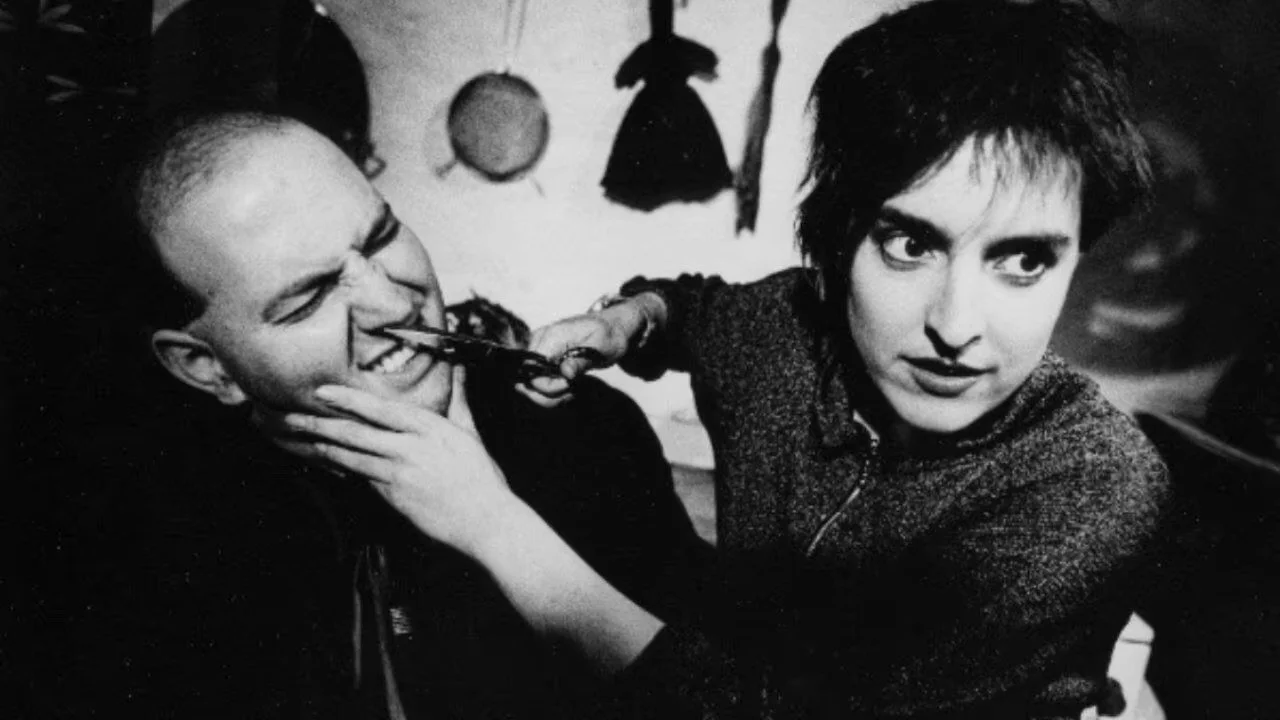dir. Monika Treut
1988 // 1 hr 24 mins // Digital Projection
Dorothee Müller (Ina Blum) is a German journalist researching an article about the nature of romantic love—something she desperately needs, given her dysfunctional relationships with former lover Heinz (Gad Klein) and brother Bruno (Marcelo Uriona). In the Oz of San Francisco, Dorothee finds exactly what she was looking for—and then some—thanks to the help of lesbian strip show barker Susie Sexpert (Susie Bright), drag king Ramona (Shelly Mars), and her mysteriously kinky neighbors (Cleo Dubois and Fakir Musafar). When Dorothy surfaces like a dazzled tourist on the wilder shores of the city’s thriving lesbian community, she has discovered her true sexuality…and left some illusions behind.
Part German Expressionist satire, part sapphic travelogue, Monika Treut’s Virgin Machine (Die Jungfrauenmaschine) is a seminal—and fiercely controversial—work of lesbian cinema.
“Films like Monika Treut’s are destroying cinema.” - Die Zeit
FEMALE MISBEHAVIOR: THE FILMS OF MONIKA TREUT
Ever since the release of her debut feature Seduction: The Cruel Woman (made in collaboration with filmmaker and longtime cinematographer Elfi Mikesch) in 1985, Hamburg-based filmmaker Monika Treut has devoted herself to depicting and documenting queer lives on screen, exploring the mysteries and ambiguities of gender, and transgressing repressive sexual mores and ideas. Fiercely controversial in her native Germany—where Die Zeit once proclaimed that “films like Monika Treut’s are destroying cinema”—Treut found much more acceptance for her work in the burgeoning queer film festival and independent film scenes in America, leading to several decadeslong collaborations with queer icons like trans poet Max Wolf Valerio and “post-porn modernist” Annie Sprinkle.
FEMALE MISBEHAVIOR brings the core of the first half of Treut’s career together in the form of recent restorations by the Hamburg Kinemathek. Encompassing both narratives (Virgin Machine, My Father is Coming) and documentaries (Didn’t Do It for Love, Gendernauts), these seven films are fearless explorations of sex and gender that trace the more taboo and less-documented arcs of queer history of the late 20th century.



